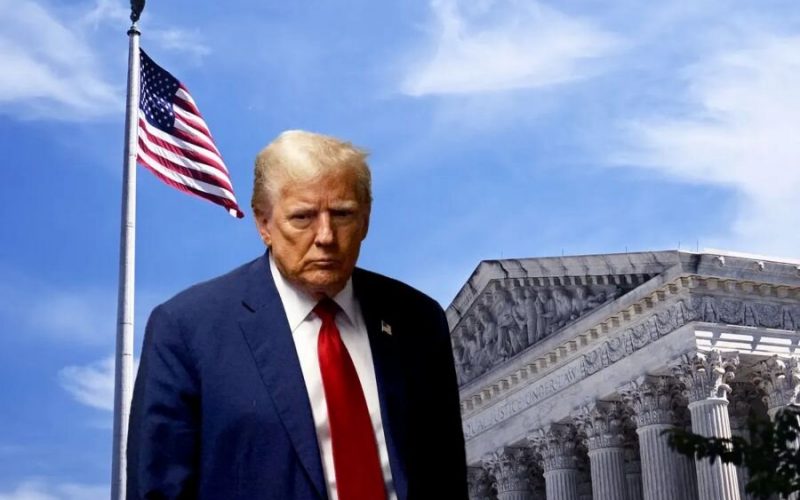Legal experts noted that comments made by Supreme Court justices during oral arguments on April 25 suggest they are leaning towards adopting a more limited form of immunity than what President Trump had asked for, and are likely to remand the case to a lower court for further review.
“It seemed likely at the end of the argument that the Justices would reject the broad immunity argument being asserted by Trump,” Heritage Foundation Vice President John Malcolm said.
He further speculated that they would “try to craft standards that would permit the prosecution of a lawless president while minimizing the likelihood that a president would constantly second-guess himself at times when action is most needed out of fear of potential prosecution once he leaves office.”
A significant portion of the oral argument centered on the limits of presidential immunity—examining the extent to which a president can engage in criminal behavior and the specific actions that would be protected by immunity.
“I think the Justices will send the case back to the lower courts to determine whether the fake electors and events leading up to the Capitol riots were official acts,” former federal prosecutor Neama Rahmani said.
“Justice Roberts was upset that the DC Court of Appeals ruled that a former president doesn’t enjoy immunity instead of addressing the official acts issue,” he added.
D. John Sauer, attorney for President Trump, argued that presidents ought to be protected from criminal prosecution for actions falling within the bounds of their official duties.
He added a caveat, stating that prosecution could proceed for official acts only if the president had been impeached and convicted by Congress for those allegations.
The definition of “official acts” remains uncertain for the justices, and during the oral argument, Mr. Sauer clarified that not all the actions outlined in special counsel Jack Smith’s indictment were official. He argued that some were private and thus could be subject to prosecution.
“I was a little surprised that Mr. Sauer for President Trump, particularly in his back and forth with Justice [Amy Coney] Barrett, was willing to concede that any number of the allegations in the indictment were private conduct,” Mark Miller, a senior attorney with Pacific Legal Foundation said.
Regardless of how the justices interpret presidential immunity, sending the case back for further review could potentially cause additional delays to the trial, originally scheduled to start in March.
“SCOTUS seems inclined to let this case go to trial, but wants to draw clear lines for future cases,” University of Michigan Law Professor Barbara McQuade said on X. She left the Trump administration as part of a wave of departures at the beginning of his term.
“Real question is timing. If Court is slow in deciding or demands findings of private vs official action, which themselves could be appealed, trial could be delayed past the election, and then Trump could derail case if he returns to office.”
“It looks like the Justices may rule against Trump more broadly, but say that certain acts were not official, and the [special counsel] can decide whether to dismiss the borderline issues and proceed with the squarely non-official acts to get a trial before the election,” South Texas College of Law Professor Josh Blackman said.
Share your thoughts by scrolling down to leave a comment.

